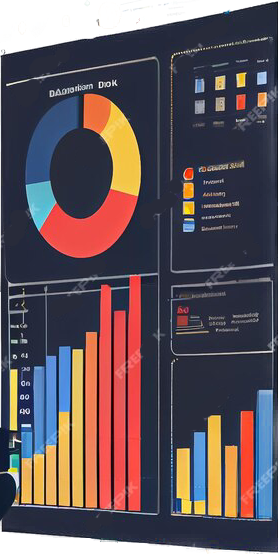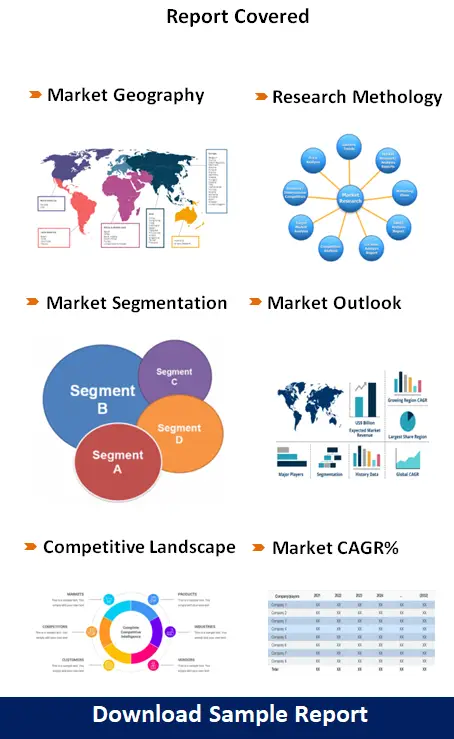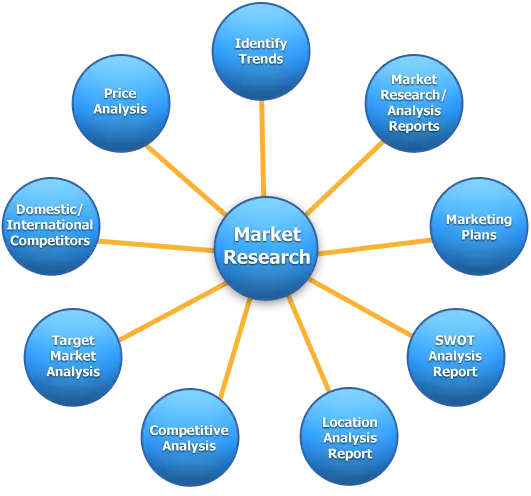Poles Market Growth CAGR Overview
According to research by Infinitive Data Research, the global Poles Market size was valued at USD 6.6 Bln (billion) in 2024 and is Calculated to reach USD 9.1 Bln (billion) by the end of 2032, growing at an anticipated compound annual growth rate (CAGR) of 6.3% during the forecast period 2024 to 2032. This projected growth is driven by its increasing adoption across Chemical & Materials industries such as Outdoor climbing, Hiking plains, Daily useThe poles market is witnessing transformative shifts driven by broad infrastructure developments across various sectors. With increasing investments in electrical, telecom, and renewable energy infrastructures, the demand for robust and durable poles has risen significantly. This demand is further enhanced by urbanization trends and the need to replace aging infrastructure, which has prompted both public and private sectors to channel resources into upgrading networks and systems. Such market dynamics underscore the critical role that poles play in supporting modern connectivity and energy distribution.
Technological advancements are reshaping the production and design of poles, with manufacturers adopting innovative materials and engineering techniques to enhance strength, durability, and aesthetic appeal. In this rapidly evolving landscape, companies are focusing on integrating smart technologies such as sensors and IoT connectivity to monitor structural integrity and environmental impacts. These technological integrations not only improve functionality but also extend the service life of poles, thereby boosting the overall market appeal and competitiveness.
A significant factor influencing the market is the rising emphasis on sustainable and resilient infrastructure. Governments and private investors are increasingly prioritizing projects that promise longevity and reduced environmental impact. This shift has encouraged manufacturers to innovate with materials like composite polymers and treated metals that offer superior resistance to corrosion and environmental stressors. Such innovations are critical to meeting the dual challenge of expanding infrastructure while also aligning with global sustainability goals, leading to a market that is both resilient and forward-looking.
Global trade policies and regional economic strategies further contribute to market dynamics in the poles sector. With cross-border supply chains and localized production units, the market is influenced by fluctuations in raw material costs, regulatory frameworks, and geopolitical considerations. Manufacturers are increasingly adopting strategic partnerships and joint ventures to optimize production efficiency and ensure a steady supply of quality inputs. This collaborative approach is central to managing market volatility and driving consistent growth, as companies work to align production capacities with regional demand trends.
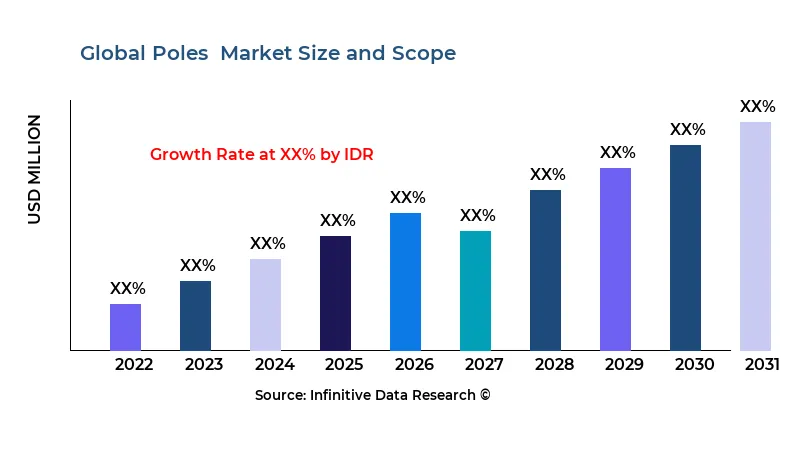
>>> Understand The Key Trends Shaping This Market:- Download PDF Sample
Poles Market Growth Factors
One of the primary drivers for growth in the poles market is the ongoing expansion of power and telecom infrastructure. As governments invest in modernizing grids and expanding connectivity networks, the demand for utility poles and related structures increases substantially. This infrastructural push is underpinned by the need for reliable and efficient transmission of electricity and data, making the poles market an essential component of national development plans. Increased funding for infrastructure projects worldwide has created a favorable environment for market expansion.
Another key growth factor is the rapid pace of urbanization and the corresponding need for modern urban infrastructure. Rapidly growing cities require new installations as well as the replacement of outdated structures. This urban transformation is accompanied by investments in beautification projects where decorative and street furniture poles add both functionality and aesthetic value. The dual focus on utility and visual appeal is broadening the market scope, encouraging manufacturers to diversify their product offerings and tailor solutions to various urban contexts.
Technological innovation plays an equally important role in driving market growth. Manufacturers are increasingly exploring advanced materials and smart solutions that improve the performance and longevity of poles. These innovations are often coupled with digital monitoring systems that provide real-time feedback on structural health, which is particularly valuable for managing large-scale infrastructure networks. The integration of such technologies not only enhances operational efficiency but also minimizes maintenance costs, thereby boosting overall market adoption.
Lastly, favorable regulatory policies and supportive government initiatives are instrumental in stimulating market growth. Many regions are witnessing government-led programs aimed at modernizing public infrastructure, which includes significant investments in upgrading poles and related systems. Tax incentives, subsidies, and streamlined approval processes are all contributing to a more conducive business environment for manufacturers and suppliers. These policy measures, combined with the overall push for infrastructural resilience, are ensuring sustained demand and robust market expansion over the coming years.
Market Analysis By Competitors
- Leki
- Black Diamond
- Komperdell
- Masters
- Cascade Mountain Tech
- Pacemaker Stix
By Product Type
- Walking poles
- Trekking poles
By Application
- Outdoor climbing
- Hiking plains
- Daily use
>>> Understand The Key Trends Shaping This Market:- Understand The Key Trends Shaping This Market:-
Poles Market Segment Analysis
Distribution Channel:
The distribution channel for poles is multifaceted, involving direct sales to government bodies, large contractors, and infrastructure developers, as well as through specialized dealers and distributors. Manufacturers often partner with local firms to ensure efficient delivery and installation, tailoring their supply chain to the unique demands of each regional market. This integrated distribution network is essential to manage the logistical complexities of transporting large and heavy products, and it enables a seamless connection between production hubs and end-user sites. As a result, companies are investing in advanced logistics and supply chain management systems to optimize delivery times and reduce overall costs.
Compatibility:
Compatibility in the poles market pertains to the alignment of product specifications with diverse infrastructure requirements. Manufacturers design poles that can support a range of applications—from high-voltage power lines to modern telecommunications and lighting systems—ensuring that the same base product can be adapted for different uses. This level of versatility is crucial in meeting the varied standards across different regions and industries. Extensive product testing and adherence to international standards ensure that these poles can be integrated into existing networks with minimal modification, thereby reducing installation times and overall project costs.
Price Range:
Price segmentation in the poles market reflects the broad diversity in product quality, materials, and technological integration. High-end poles, often made from advanced composites or treated metals, cater to markets with stringent performance and longevity requirements. In contrast, more affordable options made from conventional materials serve regions with budget constraints or lower infrastructure demands. This segmentation allows manufacturers to strategically position their products across various market segments, offering premium solutions for high-budget projects while maintaining competitive pricing for standard installations. The ability to cover a wide price range is a key competitive advantage in a market driven by both public and private sector investments.
Product Type:
The product portfolio in the poles market is diverse, spanning traditional wooden and metal poles to modern composite and smart poles. Each product type is developed to address specific performance requirements such as load-bearing capacity, weather resistance, and durability under different environmental conditions. Innovations in product design have led to the emergence of smart poles that incorporate digital sensors and connectivity features, allowing for real-time monitoring and maintenance. This diversity in product type ensures that manufacturers can cater to a wide range of applications, from rural electrification projects to urban smart city initiatives, thereby broadening their market appeal.
| REPORT ATTRIBUTES | DETAILS |
|---|---|
| Study Period |
2019-2032 |
| Base Year |
2023 |
| Forecast Period |
2024-2032 |
| Historical Period |
2019-2022 |
| Unit |
Value (USD Billion) |
| Key Companies Profiled |
Leki, Black Diamond, Komperdell, Masters, Cascade Mountain Tech, Pacemaker Stix |
| Segments Covered |
By Product |
| Customization Scope |
Free report customization (equivalent to up to 3 analyst working days) with purchase. Addition or alteration to country, regional and segment scope |
>>> Overview of Market Analysis:- Download PDF Sample
Poles Market Regional Analysis
Regional analysis in the poles market reveals distinct trends driven by local infrastructure needs and economic conditions. In North America and Western Europe, modernization projects are focused on upgrading aging utility systems and expanding broadband connectivity, which drives demand for technologically advanced and durable poles. These regions benefit from significant government funding and private investments aimed at enhancing infrastructure resilience and performance. The market here is characterized by a high level of product innovation and adherence to strict regulatory standards.
In the Asia-Pacific region, rapid urbanization and industrialization are fueling a surge in infrastructure projects. Countries in this region are investing heavily in expanding power grids, telecommunications, and transportation networks, creating a robust demand for poles that can meet diverse operational requirements. The competitive landscape in Asia-Pacific is marked by a mix of local manufacturers and international players, all vying for market share through product diversification and cost-efficient manufacturing processes. The region’s dynamic economic growth and high infrastructure spending continue to propel market expansion.
Latin America and the Middle East are emerging as key regions where infrastructure modernization is a priority. In Latin America, efforts to upgrade power distribution networks and improve urban infrastructure are creating significant growth opportunities, while in the Middle East, the focus is on building resilient systems capable of withstanding extreme environmental conditions. Investment in new infrastructure, coupled with the replacement of outdated systems, is fostering a favorable market environment. Both regions exhibit a trend toward adopting advanced materials and smart technologies, reflecting a broader shift toward modernized infrastructure solutions.
Africa is witnessing an increasing demand for poles as part of broader initiatives to improve rural electrification and connectivity. Government initiatives and international funding programs aimed at boosting infrastructure development have been instrumental in driving market growth. The focus here is on cost-effective solutions that can be deployed rapidly and maintained easily, ensuring that even remote areas have access to reliable power and communication networks. This region is expected to see significant long-term growth as infrastructure projects continue to receive strong financial backing and policy support.
global Poles market revenue (usd million) comparison by players 2024-2032
| Company/players | 2021 | 2022 | 2023 | 2024 | ... | (2032) |
|---|---|---|---|---|---|---|
| Leki | XX | XX | XX | XX | XX | XX |
| Black Diamond | XX | XX | XX | XX | XX | XX |
| Komperdell | XX | XX | XX | XX | XX | XX |
| Masters | XX | XX | XX | XX | XX | XX |
| Cascade Mountain Tech | XX | XX | XX | XX | XX | XX |
| Pacemaker Stix | XX | XX | XX | XX | XX | XX |
| Total | XX | XX | XX | XX | XX | XX |
global Poles market revenue (usd million) comparison by product type 2024-2032
Product Type
2023
2024
...
2032
CAGR%(2024-32)
Walking poles
XX
XX
XX
XX
XX
Trekking poles
XX
XX
XX
XX
XX
Total
XX
XX
XX
XX
XX
| Product Type | 2023 | 2024 | ... | 2032 | CAGR%(2024-32) |
|---|---|---|---|---|---|
| Walking poles | XX | XX | XX | XX | XX |
| Trekking poles | XX | XX | XX | XX | XX |
| Total | XX | XX | XX | XX | XX |
global Poles market revenue (usd million) comparison by application 2024-2032
Application
2023
2024
...
2032
CAGR%(2024-32)
Outdoor climbing
XX
XX
XX
XX
XX
Hiking plains
XX
XX
XX
XX
XX
Daily use
XX
XX
XX
XX
XX
Total
XX
XX
XX
XX
XX
| Application | 2023 | 2024 | ... | 2032 | CAGR%(2024-32) |
|---|---|---|---|---|---|
| Outdoor climbing | XX | XX | XX | XX | XX |
| Hiking plains | XX | XX | XX | XX | XX |
| Daily use | XX | XX | XX | XX | XX |
| Total | XX | XX | XX | XX | XX |
>>> Market Understand Through Graph And Chart:- Download PDF Sample
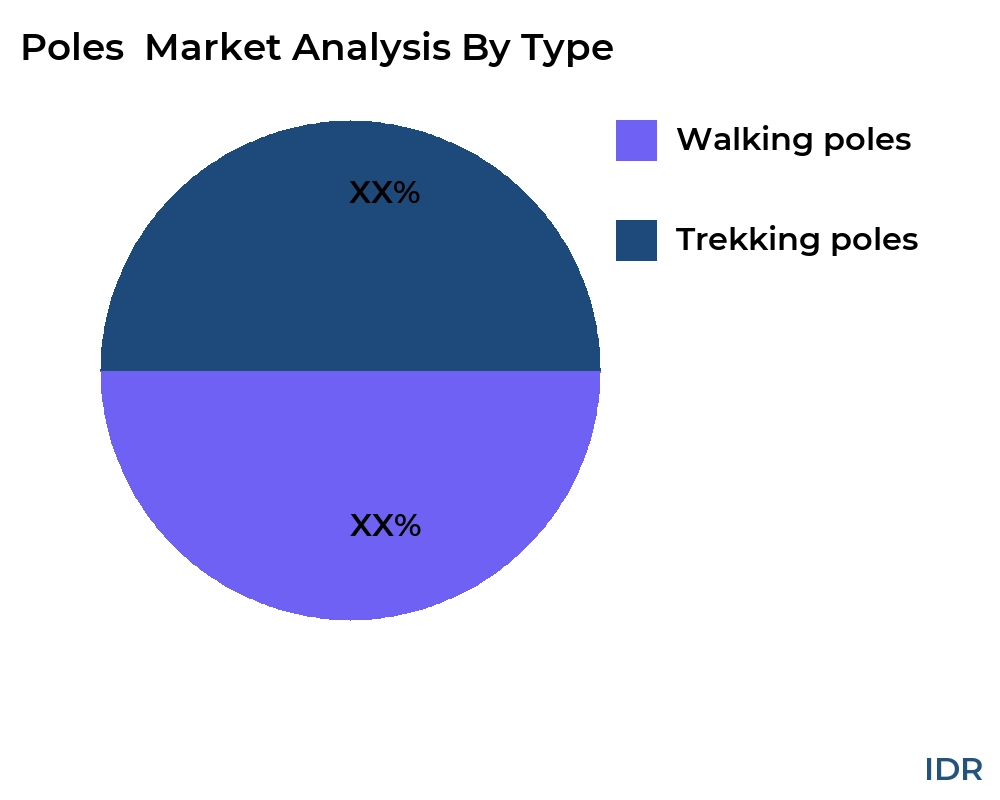

Poles Market Competitive Insights
The competitive landscape in the poles market is shaped by both longstanding manufacturers and new entrants driven by technological advancements. Established companies have built extensive networks and reputations for reliability, while newer players are leveraging innovative materials and digital integration to disrupt traditional practices. Competition is increasingly focused on the ability to deliver high-performance products that meet diverse technical and environmental requirements, and companies are investing in research and development to maintain a competitive edge. This drive for innovation has led to improved product designs and more sustainable manufacturing practices across the board.
Competitive strategies in the sector are evolving as companies look to expand their market presence through strategic partnerships and acquisitions. Mergers and alliances allow manufacturers to pool resources, share technical expertise, and optimize distribution networks. Such collaborative efforts not only enhance production capabilities but also facilitate entry into new regional markets. As a result, the competitive landscape is becoming more integrated, with companies working together to set industry standards and jointly develop next-generation infrastructure solutions.
Price competition remains a significant factor, particularly in regions where infrastructure budgets are constrained. Manufacturers are challenged to balance cost efficiency with product quality and technological innovation. As production techniques improve and economies of scale are realized, companies are better positioned to offer competitively priced products without compromising on performance. This delicate balance between cost and quality is a defining characteristic of the poles market and plays a crucial role in shaping competitive dynamics globally.
Customer relationships and after-sales support are also key elements of competitive strategy in the poles market. Firms that provide comprehensive maintenance services, real-time monitoring, and technical support tend to secure long-term contracts and repeat business. This focus on customer satisfaction and service excellence has become a central competitive differentiator, encouraging companies to invest in digital platforms and remote monitoring solutions that enhance overall service delivery. The ongoing emphasis on building strong, supportive relationships with customers reinforces competitive positioning and drives market share growth.
Poles Market Competitors
United States:
• American Electric Power
• Valmont Industries
• Lumen Technologies
• EPRI Corporation
• General Electric Infrastructure
Germany:
• Siemens AG
• ABB Group (German operations)
• Schaltbau GmbH
• EnBW Infrastruktur
• Deutsche Telekom Infrastructure
India:
• Bharat Heavy Electricals Limited (BHEL)
• Sterlite Industries
• L&T Electrical & Automation
• KEI Industries
• Punj Lloyd Infrastructure
Brazil:
• Eletrobras
• Siemens Brasil
• Weg Industries
• CPFL Energia
• Andrade Gutierrez Infra
China:
• State Grid Corporation
• China Southern Power Grid
• TBEA Co. Ltd.
• China Power Engineering
• CRRC Infrastructure
France:
• EDF Group
• Schneider Electric
• Alstom Grid
• Engie Infrastructure
• Vinci Energies
Poles Market Top Competitors
American Electric Power is recognized as a leader in the U.S. infrastructure market, excelling in the design and production of durable utility poles. With a long-established reputation for innovation and quality, the company is pivotal in driving the modernization of power distribution networks. Its extensive service network and commitment to technological integration have positioned it as a key competitor in the market.
Valmont Industries is a major force in the production of poles used in both power and telecommunications infrastructure. The company is renowned for its robust engineering capabilities and its focus on providing cost-effective, high-durability solutions. Valmont’s global footprint and strategic partnerships have solidified its competitive status in a rapidly evolving market.
Siemens AG brings a deep technological heritage and broad industrial expertise to the poles market. Known for its advanced manufacturing processes and integrated smart solutions, Siemens continues to lead in innovation. The company’s commitment to sustainability and efficiency has earned it a strong market position, particularly in regions with high infrastructure investment.
ABB Group leverages its global expertise in power and automation technologies to offer high-quality poles that are designed for modern, efficient energy distribution. Its products are known for their reliability and technological sophistication, and ABB Group has successfully integrated digital monitoring into its offerings. This strategic focus on innovation and customer service keeps ABB at the forefront of the competitive landscape.
Schaltbau GmbH has carved out a niche for itself with a focus on specialized pole designs that cater to complex infrastructure needs. The company’s dedication to engineering excellence and customized solutions makes it a preferred partner for projects requiring high precision and durability. Schaltbau’s innovative approach and regional expertise continue to drive its strong competitive performance.
L&T Electrical & Automation is one of India’s prominent players in the poles market, offering a range of products that combine traditional manufacturing with modern technology. Its focus on quality control and customer-centric solutions has helped the company secure significant market share in a competitive environment. L&T’s strategic initiatives and robust production capabilities position it as a leader in the regional market.
EDF Group, a major player in France, has long been involved in infrastructure modernization, including the deployment of high-performance poles. Its integration of smart grid technology with traditional utility structures provides enhanced efficiency and resilience. EDF Group’s continued investments in innovation and sustainability underpin its status as a top competitor in the market.
Schneider Electric, with its comprehensive approach to energy management and automation, offers advanced pole solutions that integrate seamlessly into modern grid systems. Its commitment to digital transformation and sustainable practices has been pivotal in maintaining its competitive edge in the global market. Schneider Electric’s solutions are widely recognized for their reliability and innovation.
State Grid Corporation of China is a dominant force in its home market, supplying a wide array of infrastructure components including poles. Its vast scale of operations, combined with strong governmental support, allows it to deliver products that meet high standards of durability and performance. The company’s strategic focus on expanding its technological capabilities further reinforces its leadership position.
China Southern Power Grid, a key competitor in China’s infrastructure sector, is known for its comprehensive approach to power distribution and network modernization. By integrating advanced materials and digital monitoring systems, the company provides robust and efficient pole solutions that are critical to the nation’s infrastructure development. Its strategic investments in innovation continue to secure its competitive standing.
The report provides a detailed analysis of the Poles market across various regions, highlighting the unique market dynamics and growth opportunities in each region.
- US
- Canada
- Mexico
- UK
- Germany
- France
- Italy
- Russia
- Spain
- Switzerland
- Austria
- Belgium
- Rest of Europe
- China
- Japan
- South Korea
- Indonesia
- Vietnam
- Philippines
- Australia
- Thailand
- Singapore
- Rest of APAC
- UAE
- Saudi Arabia
- Egypt
- South Africa
- Israel
- Rest of MEA
- Brazil
- Argentina
- Rest of Latin America
>>> Need A Different Region Or Segment? Download PDF Sample
Key Takeaways
- The global Poles market is expected to grow significantly from 2024 to 2032, driven by technological advancements, increasing demand, and government investments in urbanization.
- The market is characterized by a diverse range of manufacturers, product types, and applications, catering to different consumer needs and preferences.
- Regional insights highlight the unique market dynamics and growth opportunities in various regions, including North America, Europe, Asia-Pacific, Latin America, and the Middle East & Africa.
- The competitive landscape features key players who have created a dynamic and diverse market environment through collaborations, mergers and acquisitions, and innovative product developments.
- Market trends such as technological advancements, sustainability, customization, and digital transformation are shaping the growth and development of the Poles market.
- Despite the positive outlook, the market faces challenges such as regulatory compliance, high initial investment costs, and economic uncertainties.
- The report provides comprehensive coverage of market size, market share, growth factors, and strategic insights to help businesses navigate the dynamic Poles market and achieve long-term success.
By leveraging the information provided in this report, businesses can develop effective strategies, address market challenges, and capitalize on growth opportunities to ensure sustainable growth and long-term success in the global Poles market.
- Introduction
- Objectives of the Study
- Market Definition
- Research Scope
- Currency
- Key Target Audience
- Research Methodology and Assumptions
- Executive Summary
- Premium Insights
- Porter’s Five Forces Analysis
- Value Chain Analysis
- Top Investment Pockets
- Industry Trends
- Market Dynamics
- Market Evaluation
- Drivers
- Restraints
- Opportunities
- Challenges
- Global Poles Market Analysis and Projection, By Companies
- Segment Overview
- Leki
- Black Diamond
- Komperdell
- Masters
- Cascade Mountain Tech
- Pacemaker Stix
- Global Poles Market Analysis and Projection, By Type
- Segment Overview
- Walking poles
- Trekking poles
- Global Poles Market Analysis and Projection, By Application
- Segment Overview
- Outdoor climbing
- Hiking plains
- Daily use
- Global Poles Market Analysis and Projection, By Regional Analysis
- North America
- US
- Canada
- Mexico
- Europe
- UK
- Germany
- France
- Italy
- Russia
- Spain
- Switzerland
- Austria
- Belgium
- Rest of Europe
- Asia Pacific
- China
- Japan
- South Korea
- Indonesia
- Vietnam
- Philippines
- Australia
- Thailand
- Singapore
- Rest of APAC
- Middle East
- UAE
- Saudi Arabia
- Egypt
- South Africa
- Israel
- Rest of MEA
- Latin America
- Brazil
- Argentina
- Rest of Latin America
- Global Poles Market-Competitive Landscape
- Overview
- Market Share of Key Players in the Poles Market
- Global Company Market Share
- North America Company Market Share
- Europe Company Market Share
- APAC Company Market Share
- Competitive Situations and Trends
- Coverage Launches and Developments
- Partnerships, Collaborations, and Agreements
- Mergers & Acquisitions
- Expansions
- Company Profiles
- Leki
- Business Overview
- Company Snapshot
- Company Market Share Analysis
- Company Coverage Portfolio
- Recent Developments
- SWOT Analysis
- Black Diamond
- Business Overview
- Company Snapshot
- Company Market Share Analysis
- Company Coverage Portfolio
- Recent Developments
- SWOT Analysis
- Komperdell
- Business Overview
- Company Snapshot
- Company Market Share Analysis
- Company Coverage Portfolio
- Recent Developments
- SWOT Analysis
- Masters
- Business Overview
- Company Snapshot
- Company Market Share Analysis
- Company Coverage Portfolio
- Recent Developments
- SWOT Analysis
- Cascade Mountain Tech
- Business Overview
- Company Snapshot
- Company Market Share Analysis
- Company Coverage Portfolio
- Recent Developments
- SWOT Analysis
- Pacemaker Stix
- Business Overview
- Company Snapshot
- Company Market Share Analysis
- Company Coverage Portfolio
- Recent Developments
- SWOT Analysis
List of Table
- Drivers of Global Poles Market: Impact Analysis
- Restraints of Global Poles Market: Impact Analysis
- Global Poles Market, By Technology, 2023-2032(USD Billion)
- global Walking poles, Poles Market, By Region, 2023-2032(USD Billion)
- global Trekking poles, Poles Market, By Region, 2023-2032(USD Billion)
- global Outdoor climbing, Poles Market, By Region, 2023-2032(USD Billion)
- global Hiking plains, Poles Market, By Region, 2023-2032(USD Billion)
- global Daily use, Poles Market, By Region, 2023-2032(USD Billion)
List of Figures
- Global Poles Market Segmentation
- Poles Market: Research Methodology
- Market Size Estimation Methodology: Bottom-Up Approach
- Market Size Estimation Methodology: Top-down Approach
- Data Triangulation
- Porter’s Five Forces Analysis
- Value Chain Analysis
- Top investment pocket in the Poles Market
- Top Winning Strategies, 2023-2032
- Top Winning Strategies, By Development, 2023-2032(%)
- Top Winning Strategies, By Company, 2023-2032
- Moderate Bargaining power of Buyers
- Moderate Bargaining power of Suppliers
- Moderate Bargaining power of New Entrants
- Low threat of Substitution
- High Competitive Rivalry
- Restraint and Drivers: Poles Market
- Poles Market Segmentation, By Technology
- Poles Market For Live Attenuated, By Region, 2023-2033 ($ Billion)
- Global Poles Market, By Technology, 2023-2032(USD Billion)
- global Walking poles, Poles Market, By Region, 2023-2032(USD Billion)
- global Trekking poles, Poles Market, By Region, 2023-2032(USD Billion)
- global Outdoor climbing, Poles Market, By Region, 2023-2032(USD Billion)
- global Hiking plains, Poles Market, By Region, 2023-2032(USD Billion)
- global Daily use, Poles Market, By Region, 2023-2032(USD Billion)
- Leki: Net Sales, 2023-2033 ($ Billion)
- Leki: Revenue Share, By Segment, 2023 (%)
- Leki: Revenue Share, By Region, 2023 (%)
- Black Diamond: Net Sales, 2023-2033 ($ Billion)
- Black Diamond: Revenue Share, By Segment, 2023 (%)
- Black Diamond: Revenue Share, By Region, 2023 (%)
- Komperdell: Net Sales, 2023-2033 ($ Billion)
- Komperdell: Revenue Share, By Segment, 2023 (%)
- Komperdell: Revenue Share, By Region, 2023 (%)
- Masters: Net Sales, 2023-2033 ($ Billion)
- Masters: Revenue Share, By Segment, 2023 (%)
- Masters: Revenue Share, By Region, 2023 (%)
- Cascade Mountain Tech: Net Sales, 2023-2033 ($ Billion)
- Cascade Mountain Tech: Revenue Share, By Segment, 2023 (%)
- Cascade Mountain Tech: Revenue Share, By Region, 2023 (%)
- Pacemaker Stix: Net Sales, 2023-2033 ($ Billion)
- Pacemaker Stix: Revenue Share, By Segment, 2023 (%)
- Pacemaker Stix: Revenue Share, By Region, 2023 (%)
Infinitive Data Research provides comprehensive market research, offering in-depth market analysis to help companies understand their target market and industry competition. This research predicts the market acceptance of your brand and products, ensuring informed decision-making for business success.
Competitor Analysis in the Poles Industry
Conducting a competitor analysis involves identifying competitors within the Poles industry and studying their various marketing strategies. This comparative data allows you to assess your company's strengths and weaknesses relative to competitors, providing insights to enhance your market position.
Importance of Continuous Market Research
Consistently conducting market research is essential for minimizing risk at every stage of business operations. Poles market research enables you to collect qualitative and quantitative data, which, when properly analyzed, leads to wise decisions that align with user and customer needs. Below are some crucial lessons learned through the Poles market research process:

Key Dimensions of Poles Market Analysis
- Trend and Pattern Identification: Analyzing data to spot market trends and patterns.
- Pricing Analysis: Assessing keyword pricing strategies.
- Actionable Insights: Implementing insights derived from data analysis.
- Market Potential: Evaluating the potential of the Poles market.
- Competitor Analysis: Studying competitors' strategies and performance.
- Location Analysis: Assessing optimal locations for market penetration.
- Distribution Channels Analysis: Evaluating the effectiveness of distribution channels.
- Market Size and Growth Rate: Measuring market size and growth potential.
- Market Profitability: Assessing profitability prospects.
- Key Success Factors: Identifying critical factors for success.
- Cost Structure: Understanding the cost structure within the Poles industry.
Target Audience for the Report
This report is valuable for a diverse audience, including:
- Poles Market Manufacturers: To understand market dynamics and enhance production strategies.
- Investors and Financing Companies: To assess investment opportunities and risks.
- Poles Market Suppliers: To identify market demands and supply chain efficiencies.
Necessity of the Report
Making Crucial Business Decisions
Understanding the Poles market, competition, and industry landscape is vital for making informed business decisions. Without current and relevant market research, decisions may be based on outdated or irrelevant information, potentially harming the business.
Securing Investment Funds
Attracting investors requires demonstrating thorough market research. Investors need assurance that you understand the sector, current and potential competition, and whether your idea addresses a market need.
Identifying New Business Opportunities
Poles market research goes beyond understanding trends and consumer behavior. It identifies new revenue streams and opportunities for business pivots. These insights can lead to strategic changes in the business model, promoting growth and adapting to market challenges.
Avoiding Business Failures
Market research also plays a crucial role in risk mitigation. It can reveal when not to pursue certain actions, saving the company from potential losses in revenue, brand image, and more. This proactive approach is often overlooked but is essential for long-term success.
Conclusion
Infinitive Data Research's comprehensive Poles market research provides critical insights for making solid business decisions, securing investments, identifying new opportunities, and avoiding potential failures. Understanding market dynamics through continuous research ensures your company remains competitive and thrives in the Poles industry.

